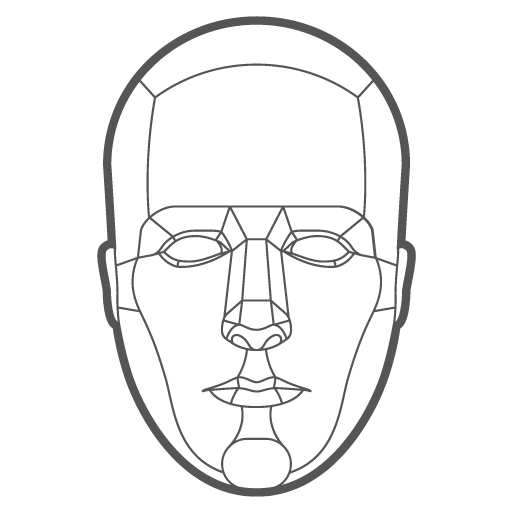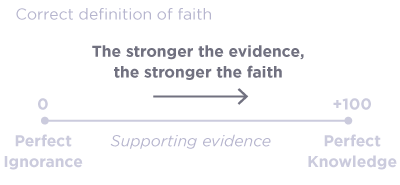Some religious adherents believe that faith is "belief without evidence". The religious philosopher Kierkegaard said, "Without risk there is no faith, and the greater the risk the greater the faith … [to understand faith] is to understand that faith cannot be understood ... must not be understood … and this absurdity, held fast in the passion of inwardness, is faith, the earnestness of facing the absurd." His picture of faith was as follows:
This picture argues that faith has primacy over evidence. I believe this interpretation is incorrect. I think this misinterpretation partly comes from scriptures that suggest faith is believing withoutseeing. Seeing is one type of evidence. Hearing, smelling, touching, feeling may be other types of evidence. I think that any scripture referring to "belief without seeing" really implies "belief without directly seeing."
Faith is belief with evidence. It simply excludes evidence that comes from direct observation. Why does it exclude direct observation? Because if we have direct observation, then we have no need for faith. Direct observation leads to a perfect knowledge.
We have evidence for many things that we cannot directly observe. We have never seen an atom but we infer that they exist based on evidence. According to my definition of faith, it is appropriate to say that we have faith that atoms exist.
Orson Pratt, one of the original leaders of my religion, said, "Faith or belief is the result of evidence presented to the mind. Without evidence, the mind cannot have faith in anything …Faith in every fact, statement, truth, or proposition which we have confidence in, is, in all cases whatsoever, derived from evidence. Therefore, without evidence, faith can have no existence."
This picture of faith is as follows:
This picture shows that evidence has primacy over faith. Only this type of faith can lead us toward a correct picture of reality.


